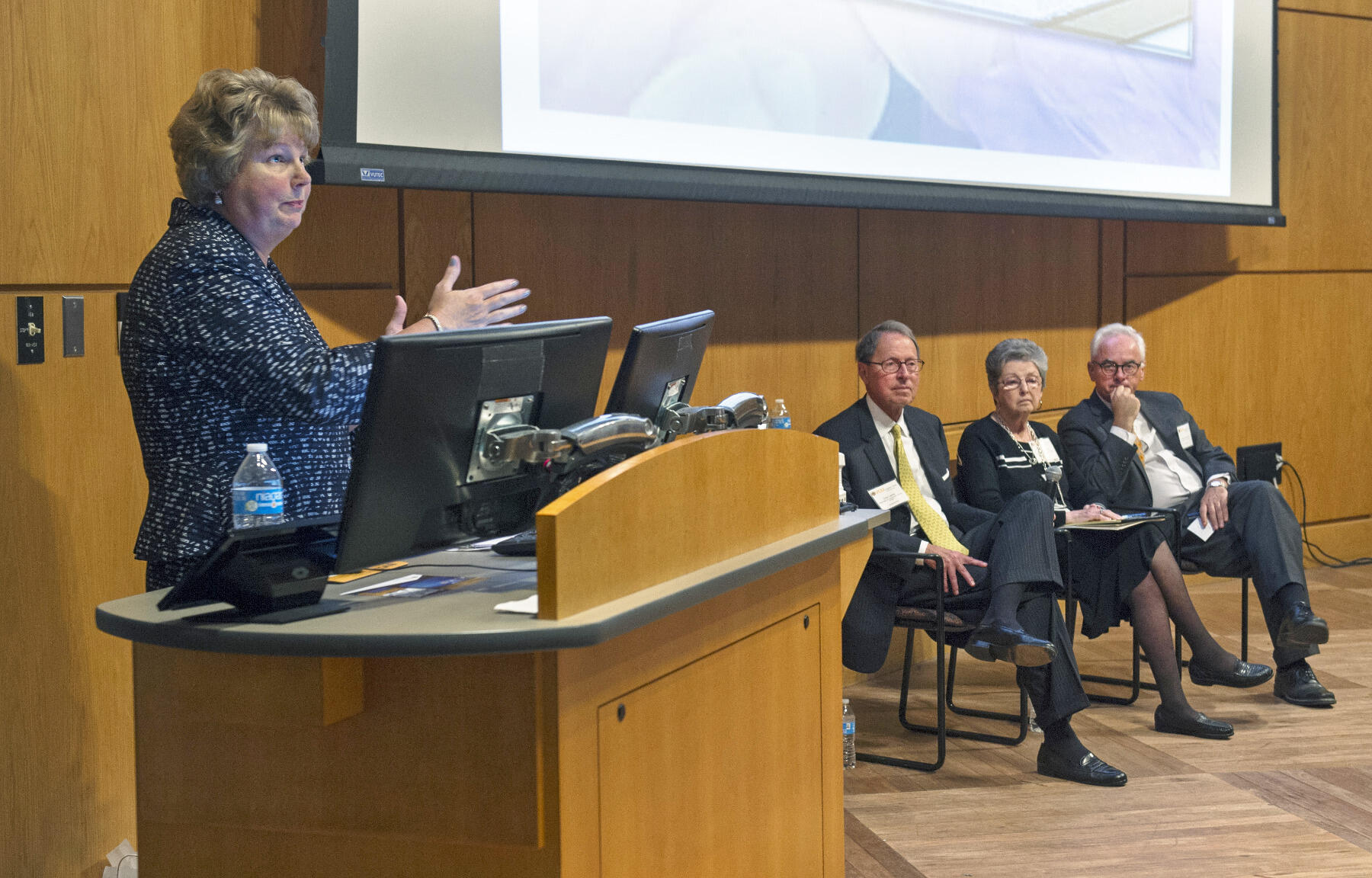Oct. 6, 2017
Medical professionals push to put patients first
Share this story

Photo by Kevin Morley, University Marketing
Beth Ann Swan’s husband suffered a stroke in 2011, and Swan — a professor at the Jefferson College of Nursing at Thomas Jefferson University in Philadelphia — received a call from a family friend who told her she needed to come to Chicago, where her husband was being treated.
There, Swan saw firsthand how impersonal medical treatment can affect a patient, and how overwhelming something as essential as paperwork can be for a patient’s family.
“The information was too much,” said Swan of the 50-plus pages of paperwork she received from the hospital, “and I’m a registered nurse.”
Swan’s husband eventually recovered from the stroke. Speaking Tuesday at Virginia Commonwealth University, Swan shared her personal story and emphasized the need to treat patients as people at Patients and Practitioners: Partnering for Health, a symposium held at the Kontos Medical Sciences building.
At the symposium, hosted by the Langston Center for Quality, Safety, and Innovation, health care leaders discussed how patient care and relations can be improved, with speakers reminding the throng of nursing students seated in the auditorium that medical care should put the patient first.
“If we’re not vigilant about being in the shoes of our patients, we’re not providing the best care,” said Marsha D. Rappley, M.D., CEO of VCU Health System and vice president of VCU Health Sciences.
Aside from Swan’s keynote and four other speeches, the symposium featured 11 presentations tackling a variety of subjects, ranging from treating anxiety patients suffering from Parkinson’s disease to a project designed to provide paperwork ensuring that end-of-life care is comfortable and stress-free for the patient.
Susan Chandler, nurse program coordinator at Massey Cancer Center, is working to make relaxation breathing part of the treatment plan for patients with Parkinson’s disease who suffer from anxiety.
Chandler discovered relaxed breathing techniques when she was getting her master’s degree at VCU. She said she first started using it to keep her wits about her while her husband drove her to work, joking that his driving skills were anxiety-inducing. Through these harrowing daily experiences, she understood the usefulness of relaxed breathing techniques.
During every increment of time, you need to be present and thoughtful in your care.
“It’s easy to learn … at diagnosis, nurses can teach relaxation breathing,” said Chandler.
The symposium was full of solutions and passionate discourse centered on improving patient care, but Swan may have summed up the spirit of afternoon best during the opening minutes of her address.
“Let go of the sacred cows of medicine … interact with people, not patients,” she said. “Whether you care for someone for nine seconds, nine minutes, nine hours, nine weeks, nine months, and longer, during every increment of time, you need to be present and thoughtful in your care.”
Subscribe for free to the VCU News email newsletter at http://newsletter.news.vcu.edu/ and receive a selection of stories, videos, photos, news clips and event listings in your inbox every Monday and Thursday during the academic year.
Subscribe to VCU News
Subscribe to VCU News at newsletter.vcu.edu and receive a selection of stories, videos, photos, news clips and event listings in your inbox.













